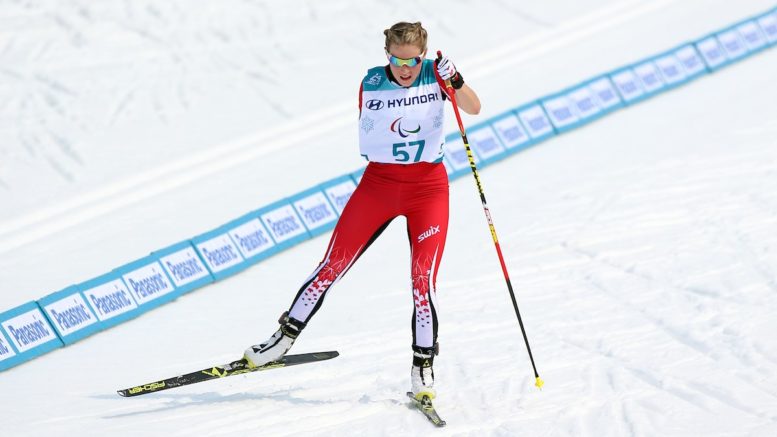Emily Young found herself at a crossroads in 2009, when an accident forced her onto an unexpected path.
Her life changed after the nerve damage injury in wrestling practice ended her hopes of going to the Olympics, so the North Vancouver native pivoted to para sports.
Now she owns a silver and two bronze medals from the Paralympics, having put her initial anger well behind.
“I was frustrated because it was like, you broke up with someone and it was only one sided,” Young said, on a video call. “When it came to a point where it wasn’t my decision, it was tough.”
Competing had been an outlet that allowed control and she wanted it back – thus the transition first to triathlon, before discovering parasports.
“I found the para side eventually and they helped me kind of transition mentally to understanding and realising that para is not a burden,” she said. “Having an injury that has maybe changed my direction is not necessarily a bad direction, it is just a different one than I had first saw for myself.”
Despite not having skied before, this turned out not to be a problem.
“I [was] the farthest person from a winter athlete when I first came into it,” said the 31-year-old. “So, [I] was literally learning the absolute fundamentals of skiing, not only the technique, but the culture of skiing also.
“I had the endurance base from doing sport and it was also refreshing because I’d never done [skiing] before my injury, so I didn’t have anything to compare to.”
Young started Nordic skiing in 2015 and within three years made her Paralympic debut for Canada in the 2018 Winter Games in PyeongChang, where she captured a silver and bronze medal.
Preparing for Beijing presented its own challenges.
“They were probably the hardest games emotionally and mentally to be able to get to because for so long, we were racing training without an end goal,” she said.
“We didn’t have a single race in almost two years and so it was [important] to know how to train at that high level and compete while keeping that drive.”
There were many races cancelled because of COVID, taking away flexibility and requiring patience.
“We were determined and motivated at the same time … a lot of us really struggled going into these games, for sure.”

